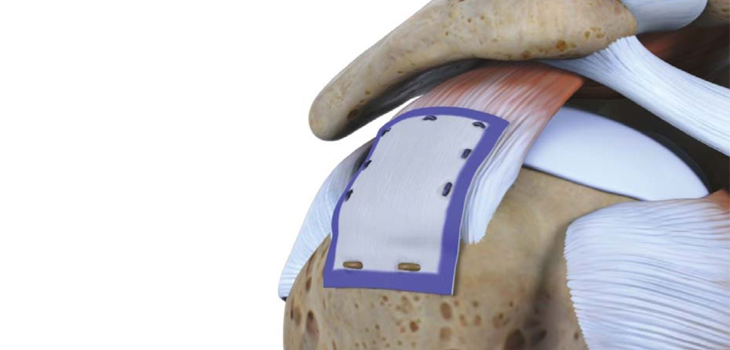 ROTATION MEDICAL’S BIOINDUCTIVE IMPLANT: POSITIVE RESULTS (Orthopedics This Week)
ROTATION MEDICAL’S BIOINDUCTIVE IMPLANT: POSITIVE RESULTS (Orthopedics This Week)
website Rotation Medical
Rotation Medical Inc., a company focused on solutions for rotator cuff disease, has announced results of a retrospective study that should be exciting for those interested in tissue healing. According to the September 27, 2016 news release, the biopsy study, published online in Arthroscopy, “supports the biocompatibility of the company’s bioinductive implant and its ability to promote new connective tissue with the histological appearance of tendon.”
“This is a breakthrough study, as it is the first to show that the Rotation Medical bioinductive implant promotes the rapid growth of tendon-like tissue in humans,” said Dr. Steven P. Arnoczky, lead investigator of the study and director of the Laboratory for Comparative Orthopaedic Research at Michigan State University. “While clinical studies have demonstrated evidence of new tissue generation via imaging, the histologic character of this tissue could only be inferred. The unique opportunity to evaluate biopsies from implant recipients confirms the findings of the preclinical animal study, and demonstrates that the implant is biocompatible and promotes new connective tissue with the histological appearance of tendon over the surface of the native cuff tendon.”
Dr.Arnoczky told OTW, “In general, the ability to histologically examine the natural history of a biodegradable implant in a clinical setting in humans is an exciting and an extremely rare opportunity. Especially since none of the second-look arthroscopic procedures which provided the biopsies were related to any clinical issues with the implant.
“While the preclinical animal studies have unequivocally established the safety of this implant, as well as provide a detailed examination of its tissue induction and tissue conduction capabilities, the ability to confirm that the process of biological incorporation, tissue generation, and tissue maturation occurs in a similar manner and over a similar time period in humans is very significant.
“I wouldn’t say there were any surprises, as previous clinical assessments of the implant using magnetic resonance imaging (MRI) have provided substantial proof as to the tissue induction abilities of the implant. Rather, the histological analysis of biopsies from different individuals at different time periods representing a span of six months allowed us to more precisely confirm the results from our preclinical animal study.
“I believe the current study together with the data from preclinical and clinical studies provide compelling evidence as to the ability of the Rotation Medical Collagen Implant to induce the formation of host-derived, tendon-like tissue in a consistent and predictable manner.”